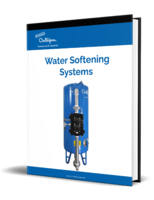NREL Research Fellow named fellow of American Physical Society.
Press Release Summary:
Howard Branz, a solar energy scientist at NREL, has been elected a fellow of the American Physical Society for seminal research on thin film silicon: defects, metastability, growth processes, nano-structuring, and solar cells. Branz is recognized worldwide for his research in nano-structured anti-reflection silicon, solar hydrogen production and defects, and diffusion in semiconductors. He and his National Center for Photovoltaics team won R&D 100 Magazine Award in 2010 for black silicon.
Original Press Release:
NREL Research Fellow Howard Branz Named Fellow of American Physical Society
Society cites Branz's seminal work on thin-film solar cells and nanostructures
A solar energy scientist at the U.S. Department of Energy's National Renewable Energy Laboratory who has done pioneering and breakthrough work on thin films and nanostructures, has been elected a fellow of the American Physical Society (APS). NREL Research Fellow Howard Branz was elected an APS fellow for "seminal research on thin film silicon: defects, metastability, growth processes, nano-structuring and solar cells," said James Riordan, spokesman for the APS.
Each year, fewer than one-half of 1 percent of APS members are accorded the honor, which recognizes members who made advances in physics through original research and publication, or made significant innovative contributions in the application of physics to science and technology.
The APS has 50,000 members and works to advance and diffuse the knowledge of physics through research journals, scientific meetings, education, outreach, and advocacy.
Branz is recognized worldwide for his research in nano-structured anti-reflection silicon, solar hydrogen production and defects and diffusion in semiconductors.
He and his National Center for Photovoltaics team won a prestigious R&D 100 Magazine Award in 2010 for black silicon, an elegant way to turn silicon cells black in just minutes and virtually eliminate reflection waste. The process produced a confirmed record of 18.2 percent efficiency for a nano solar cell.
Branz also led a research initiative that demonstrated how an NREL-developed chemical vapor deposition process has promise in lowering the cost of making silicon solar cells
Branz's colleague, NREL senior scientist Pauls Stradins, said Branz "is a very talented, productive scientist, gifted at creating novel renewable energy technology, very much an innovator."
Stradins cites two especially important innovations: Branz's breakthrough work on the deep connections of hydrogen bonding and motion within the silicon network; and Branz's insights into the role of entropy in the thermal excitation process in solids. The latter resulted in a universal explanation of the formerly mysterious Meyer-Neldel rule. The rule – that the frequency of the excitation process is strongly dependent on its activation energy – had long puzzled researchers working on condensed matter.
Branz's colleagues in the National Center for Photovoltaics at NREL say he also is a brilliant research organizer, with an unusual ability to identify new important research directions, and to hire promising young scientists.
Branz also has made critical contributions to studies as wide-ranging as the dopant states in organic semiconductors, chemistries of DNA attachment surfaces for assay sensing, electro-chromic windows, and simulations of heteroepitaxy.
Branz, a Fulbright Scholar, earned his PhD at the Massachusetts Institute of Technology, and joined NREL in 1987. In 2010, he won the Southeast Regional Laboratory Consortium Award for Excellence in Technology Transfer.
Earlier this year, Branz was named to NREL's Research Fellows Council, the Laboratory's top advisory council comprised of 10 internationally recognized scientists and engineers.
He has published 106 journal articles and 104 conference papers. Branz has 17 patents issued or applied for, and five pending NREL Records of Invention.
NREL is the U.S. Department of Energy's primary national laboratory for renewable energy and energy efficiency research and development. NREL is operated for DOE by the Alliance for Sustainable Energy, LLC.
Visit NREL online at www.nrel.gov
Media may contact:
William Scanlon
303-275-4051
William.Scanlon@nrel.gov




